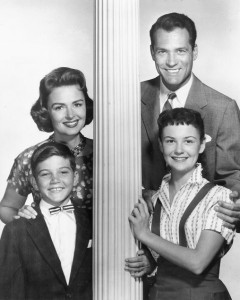Dear Blahblah
You are an insufferable old bat. I don’t give a tuppeny damn what you think Dorothy Day would have done in my position because, number one, I ain’t her, and number two, you wouldn’t know Dorothy Day’s spirituality if it crawled up your leg. Go soak your head.
In Christ, etc.
These are not – I repeat, not – the words Philadelphia Archbishop Charles Chaput used to conclude a wearying correspondence with a layperson critical of his decision to close her home parish. Nor do I claim they reflect the impression she made on Chaput. But they would seem to capture the impression Chaput made on her. His Grace’s terminal words were blunt enough to make his correspondent complain to the media. All she had wanted, she told Philadelphia Magazine, was to know why he’d made the decision he made. In Chaput’s account, he told her, repeatedly, in a long string of letters, and then announced he was through.
When people claim they want accessible leaders, or leaders who listen, they’re not being honest. They really mean they want leaders who do whatever they’re told. Those aren’t leaders, those are puppets. Or politicians.
In real life, gaining access to a leader means placing yourself at the risk of being told directly that you’re wrong – or worse. If you strip offices of their dignity, you’re inviting the holders to compensate with the force of their personalities. Instead of dismissing you with a regal “We are not amused,” they may scream at you like Howard Stern.
Or Ed Koch. Remember him, the tall, bald guy with the jug ears and big mouth who served 12 years as New York’s mayor? He was a true man of the people. During the 1980 transit workers’ strike, he planted his six-foot-two-inch frame on the Manhattan end of the Brooklyn Bridge and cheered the outer-borough commuters who’d been reduced on hoofing it. One flip side of Koch’s folksiness was his willingness to punch down and break balls when he needed to – and, sometimes, when he didn’t. Another was a tradesman’s hard-headed willingness to reject proposals that sounded wonderfully humane, but which were simply impractical.
New Yorkers remember him the way Russians remember Peter the Great: as a capable hand and priceless local color, but pity the fool dumb enough to stick his hand in the cage. In this piece, published today in Aleteia, I point out some broad similarities between him and Pope Francis. Francis may be humble in the sense of rejecting material luxury, and there’s no reason to suspect he acts with Ozymandias’ eye toward building a personal legacy. But he is not shy, nor a pushover, as Congress is now discovering, for better or worse.
From certain angles, Koch looks like the man Francis would have been had it not been for 1) his Jesuit formation, and 2) the fact of his being spared having to work out details of his broad critiques. As I write, “A pope is free to speak in favor of a Church ‘for the poor’, but a mayor has to address the poor’s existential concerns on a limited budget.”
But reflecting on Koch helped me to revise my understanding of Francis’ “culture of encounter.” Normally, when employing the phrase, the pope seems to want the Church, playing Elder Brother, to gain compassion through direct experience of the Prodigal Son. No doubt, in many instances, the Church could stand to do just that. But now I wonder – isn’t there a flip side? Aren’t these so-called encounters also supposed to give the Church the chance to impress its own vision on the world? If we have to submit to transformation, don’t we also get to transform the other guy right back? And in the last extremity, don’t we — in the manner of Koch, Chaput, and occasionally Francis – get to be a little brusque about it?
One hopes.











